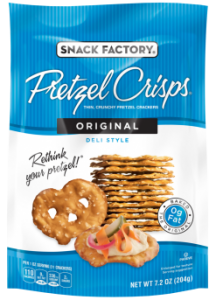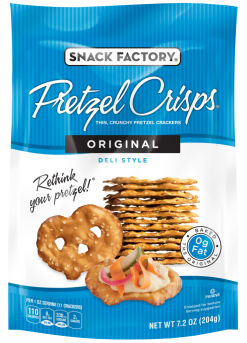A generic trademark merely describes the goods or services.
Specifically, a mark is merely descriptive under Trademark Act Section 2(e)(1), 15 U.S.C. 1052(e)(1), if it describes an ingredient, quality, characteristic, function, feature, purpose or use of the relevant goods. See In re Gyulay, 820 F.2d 1216, 3 USPQ2d 1009 (Fed. Cir. 1987); In re Bed & Breakfast Registry, 791 F.2d 157, 229 USPQ 818 (Fed. Cir. 1986); In re MetPath Inc., 223 USPQ 88 (TTAB 1984); In re Bright‑Crest, Ltd., 204 USPQ 591 (TTAB 1979); TMEP section 1209.01(b).
Can You Register a Generic Trademark?
Yes, a generic trademark that has some distinctiveness, and has been used in interstate commerce, may be registered on the Supplemental Register.
No, you may not register a generic trademark on the Principal Register. It would not be fair if someone were permitted to register a generic trademark on the Principal Register, if it has not acquired distinctiveness. Otherwise, trademark bullies could lock everyone out from using a generic mark as soon as they registered it. A trademark registration on the Principal Register is prima facie evidence of the validity of the registered mark. A trademark that is initially generic may, over time, acquire distinctiveness and become registrable on the Principal Register.
If a someone opts to register a generic trademark on the Supplemental Register; such a registration is not prima facie evidence of the validity of the registered mark.
How Do You Determine Whether a Trademark is Generic?
If a trademark is just a single word in standard characters, and the word describes an ingredient, quality, characteristic, function, feature, purpose or use of the relevant goods or services, then it is generic.
An Examining Attorney refused to register the term PROBIOTIC as a trademark trademark for use in connection with fertilizer products. TTAB ruled that “the relevant consumers are going to understand PROBIOTIC as the genus of goods, namely a fertilizer utilizing probiotic technology.” In re Milo Shammas, No. 77758863 at 13, 2012 WL 5493559 (T.T.A.B. Oct. 25, 2012)
Shammas sued in the US District Court, E.D. VIRGINIA, ALEXANDRIA DIVISION. CASE NO. 1:13–CV–1462. 2013-10-15. The court sustained the TTAB’s ruling in denying registration to Shammas because the ruling that the term PROBIOTIC is generic, and alternatively, lacks secondary meaning was supported by substantial evidence. Shammas failed to timely submit substantial new evidence to refute the TTAB’s ruling; the court did not decide the matter de novo. Shammas v. Rea, 978 F.Supp.2d 599 (E.D. Va. 2013)
A finding of fact by the TTAB will not be “upset unless it is not supported by substantial evidence.” McCarthy on Trademark, § 21:21.
See further proceedings in Shammas v. Focarino, No. 14-1191, 2015 U.S. App. LEXIS 6732 (4th Cir. Apr. 23, 2015) where Shammas challenged the court’s order to pay an award of attorney fees to the USPTO.
If a trademark is two or more words, it must be considered in its entirety and not as a compound term. PRINCETON VANGUARD, LLC v. FRITO-LAY NORTH AMERICA, INC., 2014-1517. (Fed. Cir. 2015)
The relevant public’s perception is the primary consideration in determining whether a term is generic. In re Merrill Lynch, Pierce, Fenner & Smith, Inc., 828 F.2d 1567, 1569 (Fed. Cir. 1987) (“It is basic to the inquiry to determine whether members of the relevant public primarily use or understand the term to refer to the genus of goods or services.”). And, as noted, evidence of the public’s perception may be obtained from “any competent source, such as consumer surveys, dictionaries, newspapers and other publications.” Northland Aluminum, 777 F.2d at 1559.
Is PRETZEL CRISPS a brand name or a category name?

PRINCETON VANGUARD, LLC applied to register PRETZEL CRISPS for Pretzel crackers. A USPTO trademark examining attorney determined that PRETZEL CRISPS was generic for Pretzel crackers.
TTAB File: http://ttabvue.uspto.gov/ttabvue/v?pno=92053001
The TTAB “the Board” indicated that it considered the entire record, including the surveys, but gave “controlling weight to:
- the dictionary definitions,
- evidence of use by the public, including use by the media and by third-parties in the food industry, and
- evidence of use by defendant itself.” Id. at 1960.
On this record, the Board found “PRETZEL CRISPS” is generic for “pretzel crackers.” Id. The Board explained that its conclusion would be the same if it had analyzed PRETZEL CRISPS as a phrase instead of a compound term, because “the words strung together as a unified phrase also create a meaning that we find to be understood by the relevant public as generic for ‘pretzel crackers.’” Id.
Given the Board’s finding of genericness, it did not address whether the term PRETZEL CRISPS, when used in connection with pretzel crackers, has acquired distinctiveness. Id. at 1960 n.13.
On appeal from the United States Patent and Trademark Office, Trademark Trial and Appeal Board in Nos. 91195552 and 92053001, the United States Court of Appeals for the Federal Circuit found that the Board decided the matter on the wrong basis.
On remand, the Board must consider evidence of the relevant public’s understanding of the term PRETZEL CRISPS in its entirety.
